Storytelling has always been medicine. For generations, our stories have carried the wisdom of our ancestors reminding us of who we are, where we come from, and how we continue to heal. During Domestic Violence Awareness Month (DVAM), we honor those who use their voices to break cycles of violence, reclaim safety, and guide our communities toward healing.
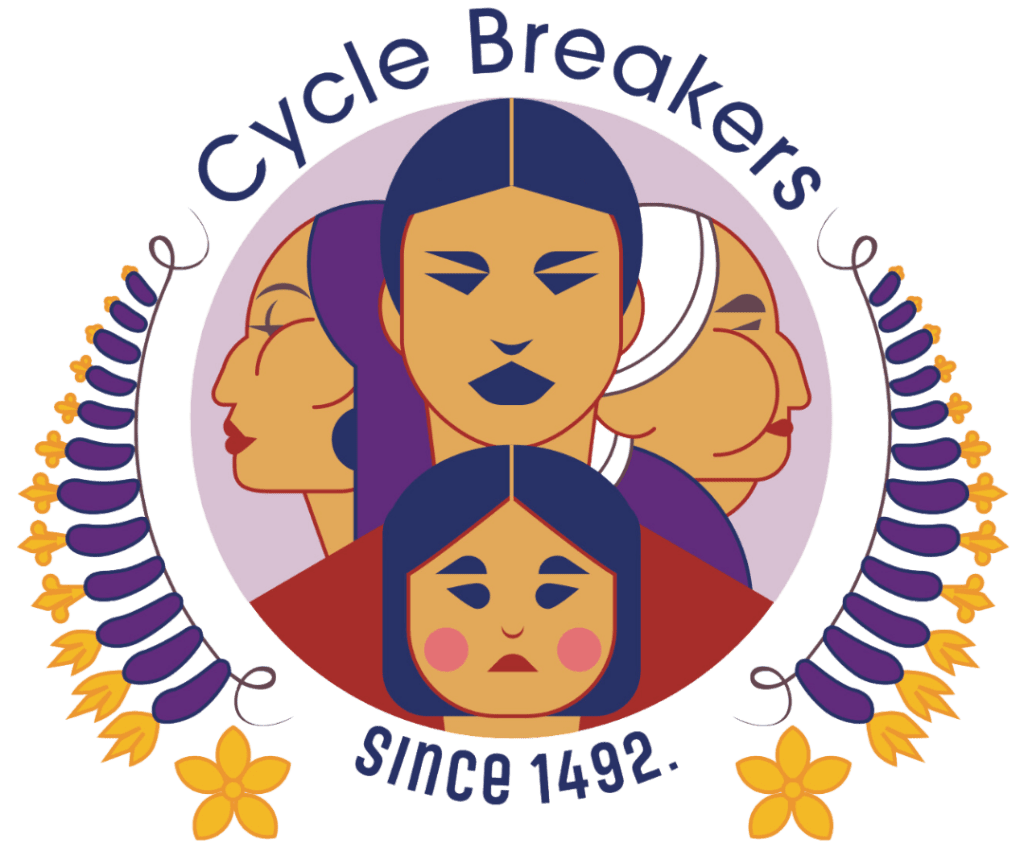
Each survivor’s story is a powerful act of resistance. Sharing these stories helps us recognize that violence is not our tradition, healing is. By speaking out, survivors remind us that silence does not protect us; truth does. Their words illuminate pathways to safety and justice for future generations.
LISTENING WITH CARE
When we listen to survivor stories, we must do so with gentleness and respect. Storytelling about domestic and intimate partner violence can be deeply personal and sacred. These narratives do not define survivors, they reflect their strength, resilience, and commitment to breaking intergenerational harm.
As advocates, relatives, and community members, we are called to hold space for these truths without judgment. We can uplift these voices by believing survivors, respecting boundaries, and ensuring that their stories are shared in ways that center their safety and consent.
“To tell our stories is to heal. To be heard is to reclaim power.”
CYCLE BREAKERS IN OUR COMMUNITIES
Across Native communities, survivors are redefining what safety, love, and strength look like. From elders teaching traditional ways of protection to youth using art and advocacy to speak out these are all acts of cycle breaking.
We invite you to reflect:
- What does breaking the cycle mean to you?
- Whose stories have guided your own healing?
- How can we create spaces where survivors feel safe to share their truth?
A NOTE ON SHARING SURVIVOR STORIES
Disclaimer: The stories shared throughout this campaign come from survivors and community members who have chosen to share their experiences. Each story is told with consent and cultural care. Some content may be sensitive or triggering for readers. Please take care while reading, and reach out for support if you need it.
If you or someone you know is experiencing domestic or sexual violence, help and support are available: StrongHearts Native Helpline: 1-844-7NATIVE (1-844-762-8483). Available 24/7 | Confidential | Culturally grounded
Heal for your ancestors . . . Heal for your children . . . Heal for YOURSELF!! – East Mountain Resource Center, Mescalero Apache
Breaking the trauma cycle means sending unhealthy coping mechanisms and emotional patterns for the new generation or any generation. They can use self-awareness, healing and creating new healthier behaviors and patterns. – anonymous
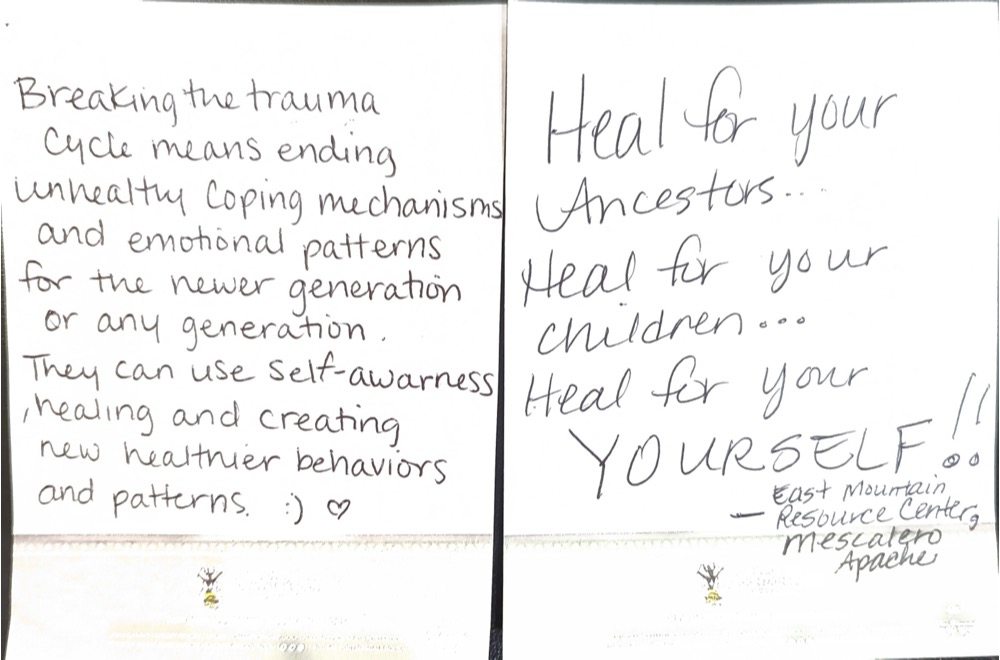
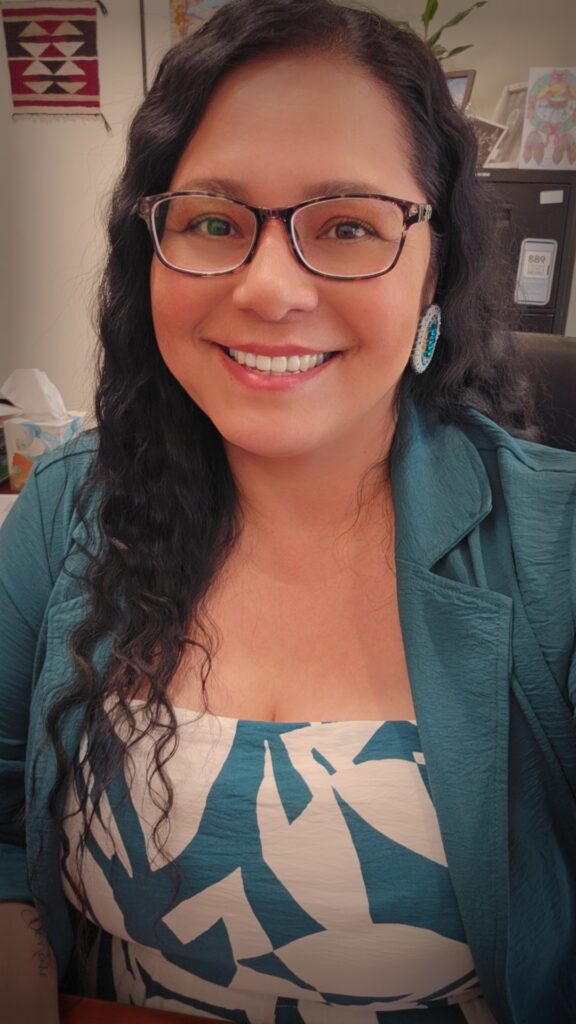
Valara James
“I am a Cycle Breaker because I chose healing over hurt, forgiveness over anger, and love over fear.
When I was twelve years old, I witnessed my mother being murdered in front of me as a result of domestic violence. Much of my childhood before that moment was filled with the pain and fear of watching her endure abuse in many forms, but that day changed my life forever. I saw firsthand the devastation that violence can cause, not only to the person being hurt but to everyone who loves them.
For a long time, I carried anger, sadness, and confusion. But as I grew older, I realized that holding on to that pain would only continue the cycle. My healing began when I made the decision to forgive the man who murdered my mom. It wasn’t to excuse what he did, but to free myself from the weight of hate and to ensure that I didn’t pass that pain on to my children.
I am a Cycle Breaker because I refused to let my past define the future for me or my sons. I made a promise to myself that I would never allow violence to have a place in my life or my home. I’ve worked to raise my sons with understanding, respect, and compassion, to teach them that love never hurts and that strength can come from kindness and empathy.
Forgiveness gave me peace. Healing gave me purpose. And breaking the cycle gave my family a new beginning, one built on safety, love, and hope.
Sharing my story is part of my healing. It’s a way to honor my mother’s memory and to show that even in the face of deep pain, transformation is possible. I hope my journey reminds others that it’s never too late to choose healing, to forgive, and to create a new path — one filled with strength, peace, and love.”
Call to Action:
This DVAM, we invite you to share your own reflection or story of healing using the prompt:
“I’m a Cycle Breaker because…”
Tag @csvanw and use #CycleBreakersSince1492 to join the movement. Together, we continue the legacy of healing, resistance, and love passed down from our ancestors.
Related Posts
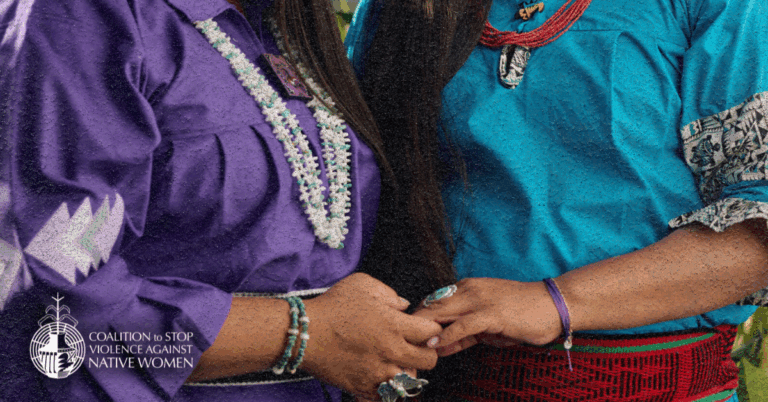
Honoring Your Healing: Gentle Goal Setting After Trauma or Loss
By CSVANW Healing after trauma or loss is never a straight path. For many of…
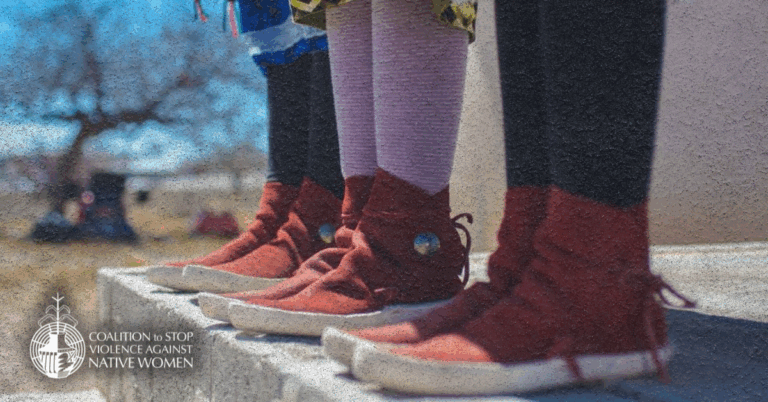
Taking Care of Yourself and Your Family During the Holidays
By CSVANW The holiday season can hold many emotions at once: joy, reflection, overwhelm, grief,…
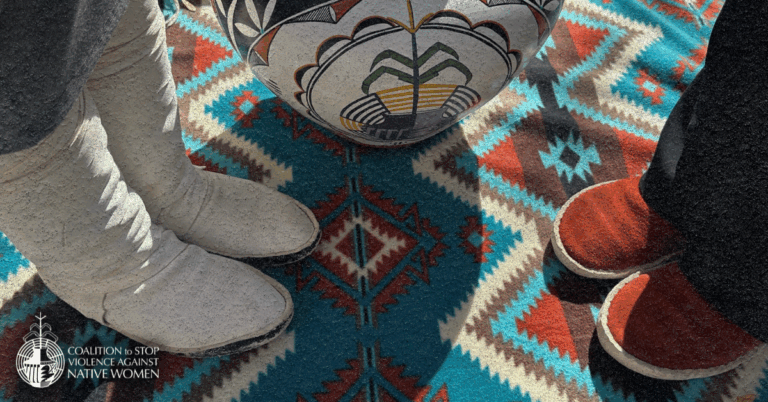
Walk a Mile in Their Mocs
Stories from Advocates Protecting Our Relatives, Preserving Our Future. Every November, Native American Heritage Month…
